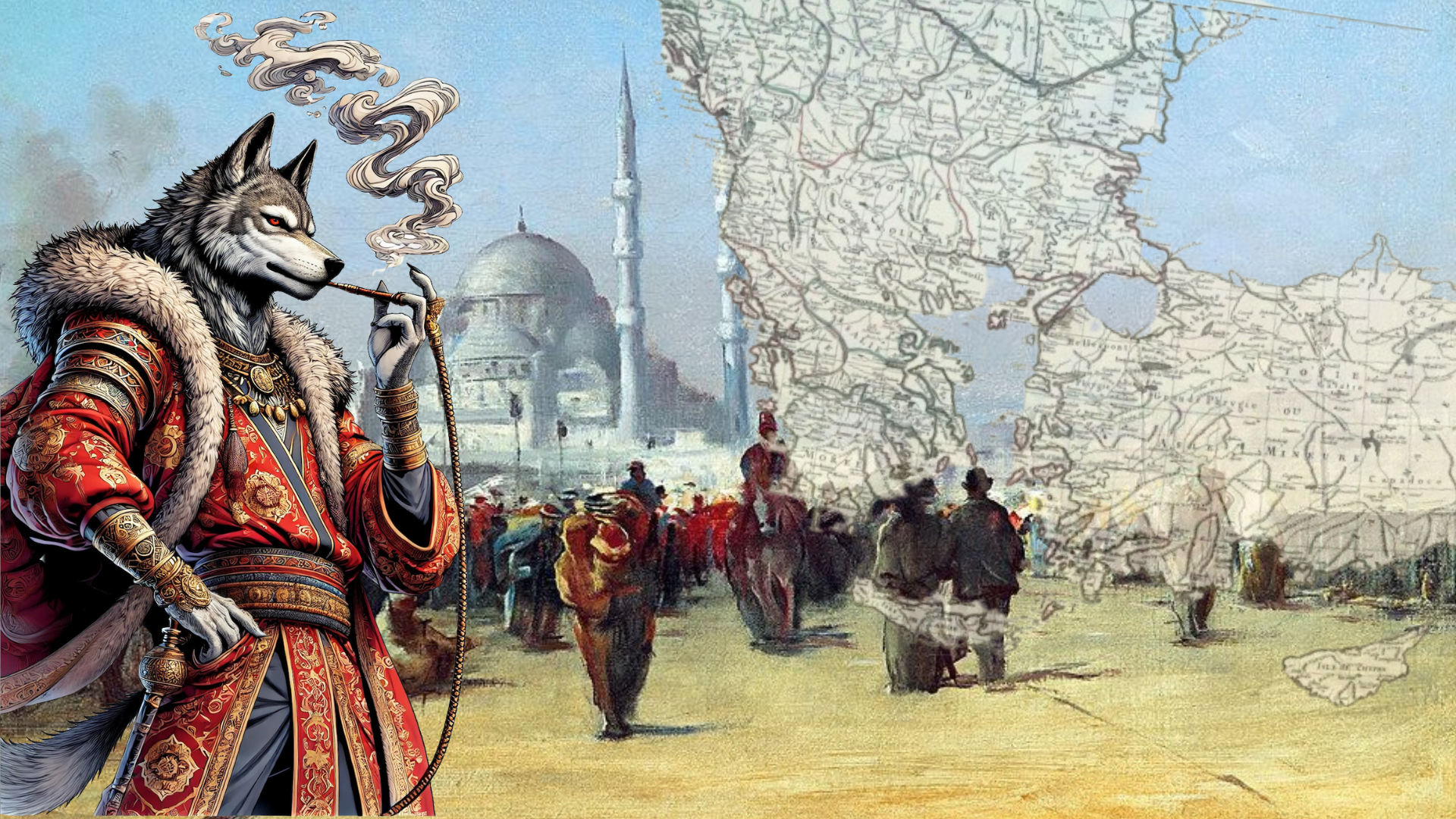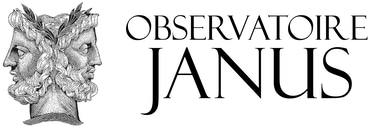Turkey’s strategy for influence in the Balkans
More than a century after the fall of the Ottoman Empire, Turkey is still navigating its geopolitical identity. Having once retreated from the Balkan Peninsula, it has now made a significant return over the past few decades, balancing neo-Ottomanism with Erdoğanism. By leveraging economic, diplomatic, and cultural tools, Turkey continues to project its regional ambitions and bolster its influence in the region.
POWERPOPULATION
Jules Basset

Today, Turkey wields significant advantages and openly displays a strong will to power. Seeking to assert itself as a regional leader bridging Europe and Asia, it bases its policy—under President Recep Tayyip Erdoğan—on an interplay of economic, religious, and cultural factors that goes beyond mere influence-building. At its core, Ankara aims to redefine Turkey’s position, image, and above all its role in its immediate environment.
Turkey: between the pursuit of power and neo-Ottomanism
In today’s complex international climate, Turkey under Erdoğan has adopted a foreign policy that blends neo-Ottoman aspirations with the drive to emerge as a dominant regional power. In the Balkans, this approach extends beyond conventional diplomacy, relying on a mix of religious, cultural, and economic ties rooted in the Ottoman legacy and the central role of Islam. By claiming this heritage, President Recep Tayyip Erdoğan seeks not only to reinforce existing bonds but also to position himself as a spiritual and political leader, promoting Turkey as the guardian of Muslim communities in the region.
Erdoğanism, which defines the current regime, stands on four key pillars:
Authoritarianism, reflected in stringent electoral control;
Neo-patrimonialism, where economic resources are allocated to foster loyalty to the regime;
Populism, employed as a political strategy to mobilize popular support;
Islamism, adopted as a political ideology to consolidate religious legitimacy.
These elements manifest in the Justice and Development Party’s (AKP) efforts to establish Turkey as an indispensable force in Balkan politics, leveraging both economic cooperation and soft power. Through targeted investments, major infrastructure projects, and sponsorship of educational and religious initiatives, Ankara seeks to weave itself into the social and political fabric of Balkan nations, going well beyond simple trade partnerships.
Although Ahmet Davutoğlu left the AKP in 2019, his neo-Ottoman vision continues to shape Turkish foreign policy, particularly in the Balkans. Spanning phases of Europeanization, post–Arab Spring Islamization, and “Splendid Isolation,” Davutoğlu’s approach cemented Islamism, anti-Western sentiment, and interventionism in Turkey’s external strategy. Blending Erdoğanism with Davutoğlu’s legacy, Turkey’s current policy fuses domestic ambitions with a geopolitical agenda, highlighting both the Islamization of domestic politics and the outward spread of Turkish-Islamic irredentism.
Fertile ground for Turkish influence in the Balkans
Turkey’s influence campaign in Albania and Kosovo combines diplomacy with religious ties, aided by a shared Ottoman heritage and a significant Muslim population. Erdoğan employs this legacy to portray himself as both spiritual and political leader, strengthening cultural and economic bonds while presenting Turkey as the protector of Muslim communities. Ankara lends strong backing to Kosovo, a young state reliant on foreign support, thereby cementing its presence in the region.
A similar pattern emerges in Bosnia and Herzegovina, where Turkey has grown closer to the Bosniak Muslim community. This has involved large-scale investments and support for post-war reconstruction following the 1992–1995 conflict. Today’s Erdoğan-led Turkey reinforces its standing through public events, such as high-profile electoral rallies, and by cultivating relationships with certain Bosnian political leaders. The country can also count on the discreet yet tangible presence of a branch of the Grey Wolves in Bosnia and Herzegovina. Erdoğan further works on his image among Bosnia’s diaspora in Serbia.
In Bulgaria, Turkey capitalizes on the sizeable Turkish minority to influence local politics—exemplified by the small Bulgarian party DOST (meaning “friend” in Turkish), led by a figure closely aligned with Ankara. Formed from a split in the DPS—traditionally the party of Bulgaria’s ethnic Turks—DOST was openly promoted by Turkish officials during elections, prompting accusations of interference from Bulgarian politicians. Even the DPS’s historic leader, Ahmed Dogan, publicly faulted President Erdoğan for deteriorating relations between the two countries.
In parallel, Turkey leverages Turkish minorities in North Macedonia to expand its regional clout, taking advantage of the country’s tensions and internal challenges. Ankara seeks to shield these communities abroad and enhance its ties with the local government. Ultimately, Erdoğanism marks a clear shift in foreign relations from the traditional Kemalist paradigm of national sovereignty and secularism. At the same time, Turkey’s Balkan policy involves building stronger ties with Serbia and Hungary, aiming to secure their neutrality or even backing. High-profile meetings, such as those bringing together Recep Tayyip Erdoğan, Viktor Orbán, Aleksandar Vučić, and Milorad Dodik (Republika Srpska), illustrate this strategy. Hungary’s prime minister has emphasized “Turkey’s vital role in shaping Europe’s security architecture,” viewing Ankara’s involvement as essential for the continent’s stability. Meanwhile, Turkey’s efforts in Serbia are paying off—even as Ankara openly supports Kosovo—to the point that Turkey sells military drones to both Serbia and Kosovo.
Economy and politics: two sides of the same coin
Under the AKP, Turkey has steadily positioned itself as a new patron in the Balkans—historically a sphere of influence for major European powers and, to a lesser degree, the United States. Central to this ascension is an assertive, diverse economic strategy marked by soaring trade volumes and rising Turkish foreign direct investment (FDI) in the region.
In Bosnia and Herzegovina and Kosovo, Turkey emerges as a key investor with substantial yearly inflows focused on infrastructure, energy, and finance. Examples include construction of major projects like the Sarajevo–Belgrade highway in Bosnia and large-scale highways and airport management in Kosovo by Turkish firms. This trend extends to North Macedonia, Montenegro, and Albania, though Turkish investment there may be smaller in volume but remains on an upward trajectory. In Albania, for instance, Turkish investment averages around USD 10 million annually, diversified across airport construction and other economic ventures.
Turkey’s approach seamlessly merges politics with economics. As the third-largest investor in Albania, Ankara has financed major projects such as the so-called “Highway of the Nation” linking Kosovo and Albania. In Kosovo, the Turkish embassy funds agricultural projects on the condition that they bear the name of an Ottoman sultan—highlighting how investment initiatives can also serve to project cultural and historical symbolism.
A similar dynamic arose during Ankara’s crackdown on the Gülen movement, accused of orchestrating the failed 2016 coup. President Erdoğan leveraged Turkey’s economic clout in pressing Balkan governments—particularly Albania, Kosovo, and Bosnia and Herzegovina—to act against Gülen-affiliated schools and media personalities critical of his rule, warning of diminished economic cooperation if they refused. Over time, such pressure yielded results, allowing Erdoğan’s government to expand the Maarif Foundation (created in 2016) as a substitute to Gülenist institutions.
Moreover, Turkish development aid typically comes with fewer strings attached compared to the European model, which often conditions financial assistance on democratic or social reforms. This positions Ankara advantageously in its quest for influence, allowing deeper inroads into local economies without the constraints associated with EU-backed aid. Turkey’s growing economic footprint has, however, raised concerns in the EU, particularly when Turkish ventures—such as its outreach during the COVID-19 crisis—are perceived as ways to strengthen its image and sway in the Balkans, possibly at odds with European interests.
A strategy of diplomatic populism
Turkey enjoys significant goodwill in North Macedonia—among politicians and citizens alike—for its early, unwavering support of the country’s independence and its recognition under the constitutional name “Republic of Macedonia.” Ankara’s solidarity with a young state embroiled in disputes with all its neighbors earned Turkey broad popularity, changing how Macedonians traditionally viewed the Turks and the Ottoman legacy. A comparable dynamic emerged in Bosnia and Herzegovina and Kosovo, with Turkey among the first countries to recognize these new states. Under Erdoğan, Ankara has harnessed this legacy of support and taken an even more proactive stance.
Separately, the sympathetic reactions of Albanian and Bosniak populations to the 2016 coup attempt in Turkey showed just how entrenched Turkey’s influence has become in the region. This affinity extends to the Sandžak region in Serbia, where the majority is Bosniak. Erdoğan often invokes powerful imagery to assert Turkey’s presence in the Balkans, memorably proclaiming during the 2013 inauguration of Pristina’s airport, “Turkey is Kosovo, and Kosovo is Turkey.” Some observers even compare Erdoğan to a “Sultan” and Albanian Prime Minister Edi Rama to a “Pasha.”
Tools for shaping Turkey’s narrative in the Balkans
Two major institutions have become cornerstones of Turkey’s influence strategy, especially under Erdoğan’s presidency: the Presidency of Religious Affairs (Diyanet) and the Turkish Cooperation and Coordination Agency (TIKA). The Diyanet, now a key instrument, focuses on financing and constructing mosques and Islamic educational facilities, aiming to bolster cultural and political ties with Balkan countries. Projects such as restoring Et’hem Bey Mosque or building the Namazgah Mosque in Tirana highlight an effort to promote a “moderate” Islam, though critics see this as a vehicle for advancing Erdoğan’s own political Islamic agenda. Concerns have also surfaced over alleged espionage and interference, with some accusing the Diyanet of monitoring local Muslim communities to serve Ankara’s interests.
TIKA, meanwhile, drives public diplomacy with a range of development, humanitarian, and cultural programs. Its significant contributions include restoring historic landmarks and building vital public infrastructure—schools and cultural centers—thus directly uplifting local communities’ quality of life. In addition, TIKA fosters professional training and technical assistance, spurring entrepreneurship and job creation. Beyond economic support, it also seeks to deepen cultural ties, broadening Turkey’s positive image and strategic aims in the region.
Further reinforcing Ankara’s narrative are the Yunus Emre Institutes, which promote the Turkish language across the Balkans, and various Turkish foundations—especially active in Bosnia and Herzegovina—coordinating the rollout of Turkish influence. Turkey also employs international media outlets to convey news through its own lens; TRT World and its Balkan branch, TRT Balkans, frequently underscore the EU’s perceived shortcomings in its enlargement process while highlighting Turkey’s positive regional role, portraying Ankara as a viable alternative to Europe.
As direct confrontations once again surface on the continent, the EU cannot limit its focus in the Balkans solely to countering Russian influence. European powers must also remain alert to other regional competitors—especially those pursuing ambitious policies like Turkey—if they wish to safeguard their interests in this critical part of Europe.
